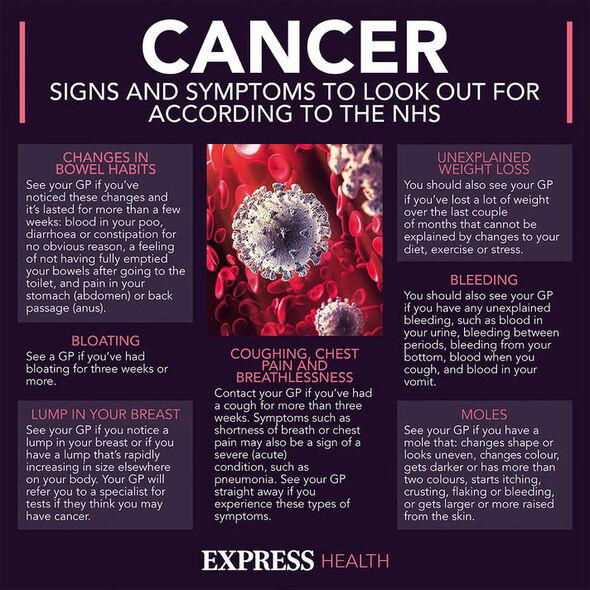Red Leaf Lettuce: Hear from the experts on why they're good to eat, health risks, and more









Red Leaf Lettuce: Hear from the experts on why they're good to eat, health risks, and more
Perspective from Caroline Luiza C. Castro
Benefits
- Red leaf lettuce is effective in improve levels of vitamin A in our body. It's occurring because this vegetable has an important amount of this vitamin, which is beneficial for vision
- Red leaf lettuce is fully of vitamin K. This vitamin is important for blood clotting.
- Red leaf lettuce helps reducing overweight, since it's low in calories and also rich in fiber
Possible Side Effects
- Some people can suffer allergic contact dermatitis
Perspective from Luciana M. Cherubin
Benefits
- Red leaf lettuce helps in weight loss as it is low in calories but high in nutrients.
- Red leaf lettuce is effective to protect your body from damage. It is high in antioxidants, which may help prevent the type of cell damage that leads to cancer.
- Red leaf lettuce is high in vitamin A, a nutrient that is essential for maintaining vision and immunity.
Possible Side Effects
- Red leaf lettuce is high in vitamin K. Individuals taking the blood thinner warfarin should consult with their healthcare practitioners before consume lettuce.
Haematochezia found to be most accurate symptom of bowel cancer - 99.4% specificity
















Haematochezia found to be most accurate symptom of bowel cancer - 99.4% specificity
Bowel cancer is one of the most common types of cancer diagnosed in the UK. Like all forms of cancer, the prognosis significantly improves the earlier it's detected. That makes symptom awareness front and centre. A study published in the journal BMC Primary Care sought to determine which symptoms provide the most accurate predictor of bowel cancer.
For the study, 511 cases of cancer were recorded prospectively among 61,802 patients 16 years and older in Norway, Denmark, Sweden, Netherlands, Belgium and Scotland.
Bowel cancer, also known as colorectal cancer, is one of the main types of cancer associated with abdominal symptoms; hence, an in-depth subgroup analysis of the 94 colorectal cancers was carried out in order to study variation in symptom presentation among cancers in different anatomical locations.
Data was collected via a standardised form containing closed questions about symptoms recorded during the consultation.
Follow-up data were provided by the GP after diagnosis, based on medical record data made after the consultation.
GPs also provided free text comments about the diagnostic procedure for individual patients.
What did the researchers find out?
Almost all symptoms recorded could indicate colorectal cancer.
"Rectal bleeding", also known as haematochezia, had a specificity of 99.4 percent, making it the most reliable indicator of bowel cancer.
Blood in stools may also indicate gastrointestinal bleeding. When these symptoms and signs were combined, sensitivity reached 57.5 percent.
General signs to spot
The symptoms of bowel cancer can be subtle and do not necessarily make you feel ill.
According to the NHS, More than 90 percent of people with bowel cancer have one of the following combinations of symptoms:
- A persistent change in bowel habit - pooing more often, with looser, runnier poos and sometimes tummy (abdominal) pain
- Blood in the poo without other symptoms of piles (haemorrhoids) - this makes it unlikely the cause is haemorrhoids
- Abdominal pain, discomfort or bloating always brought on by eating - sometimes resulting in a reduction in the amount of food eaten and weight loss.
"See a GP if you have any of the symptoms of bowel cancer for three weeks or more," advises the health body.

Are you at risk?
The exact cause of bowel cancer is unknown. However, research has shown several factors may make you more likely to develop it.
Your risk of developing bowel (colon and rectal) cancer depends on many things including age, genetics and lifestyle factors.
Many studies have shown that eating lots of red and processed meat increases the risk of bowel cancer.
It is estimated that around 13 out of 100 bowel cancer cases (around 13 percent) in the UK are linked to eating these meats.

Processed meat is any meat that has been treated to preserve it and/or add flavour - for example, bacon, salami, sausages, canned meat or chicken nuggets.
Obesity is also a cause of bowel cancer, warns Cancer Research UK.
It is estimated that 11 out of 100 bowel cancers (11 percent) in the UK are linked to being overweight or obese.
{youtube }v=fpaz6J3nuHY{/youtube}
Obesity means being very overweight with a body mass index (BMI) of 30 or higher.
BMI is a measure of whether you're a healthy weight for your height.
Lychee: Expert opinions and healthy portions
















Lychee: Expert opinions and healthy portions
Quantity recommendation by Faith Seke
- Eating atleast two cups of lychee per day is highly recommended. One cup full of lychees equates to about 190 grams of the fruit. Before consuming lychees one should take into consideration their health conditions.
Quantity recommendation by Leticia Soares
- The recommended daily serving of lychee is around three to four fruits. Larger amounts than those recommended can lower your blood sugar and cause symptoms of hypoglycemia such as dizziness, confusion and even seizures in extreme cases. The ideal is to consume this fruit after meals and it should be avoided in the morning.
Quantity recommendation by Cagla E. Kayma
- Daily fruit intake. It's recommended that you get at least 1.5 to 2.5 cups of fruit a day and 2 to 4 cups of vegetables. Eating more fruits instead of dessert may help you stick to a weight control plan.
Consuming two tablespoons of honey improves blood sugar and cholesterol levels, study finds













Consuming two tablespoons of honey improves blood sugar and cholesterol levels, study finds
Consuming two tablespoons of honey can help balance blood sugar and improve cholesterol levels, according to a new study.
Experts said replacing added sweeteners in the diet – such as sugar in tea – with honey can lower the risks of illnesses associated with eating too much sugar, like type 2 diabetes, heart disease and non-alcoholic fatty liver disease.
Researchers at the University of Toronto analysed the results of 18 trials including more than 1,100 participants and found that raw honey from a single floral source had the most positive effect on the body.
They found it lowered fasting blood glucose and the number of low-density lipoprotein (or “bad cholesterol”) in the blood.
Consuming honey also increased high-density lipoproteins (“good” cholesterol”) and showed signs of improving inflammation.
All participants in the study followed a generally healthy diet, and sugar accounted for 10 per cent or less of their daily caloric intakes.
The study found that honey from a single floral source “consistently produced either neutral or beneficial effects” on the body.
Participants were given an average of 40 grams, or about two tablespoons of honey daily over the course of eight weeks.
Most of the benefits were observed in people who consumed raw honey, from False Acacia or Black Locust trees.
However, honey lost many of its health benefits after it was heated above 65 degrees Celsius.
Tauseef Khan, a senior researcher at the University’s Faculty of Medicine, said the results were surprising because honey “is about 80 per cent sugar”.
“But honey is also a complex composition of common and rare sugars, proteins, organic acids and other bioactive compounds that very likely have health benefits,” Khan said.
Experts said the results showed that not all sugars should be treated the same by health and nutrition officials.
“We’re not saying you should start having honey if you currently avoid sugar,” Khan said. “The takeaway is more about replacement – if you’re using table sugar, syrup or another sweetener, switching those sugars for honey might lower cardiometabolic risks.”
Articles - Most Read
- Home
- LIVER DIS-EASE AND GALL BLADDER DIS-EASE
- Contacts
- African Wholistics - Medicines, Machines and Ignorance
- African Wholistics -The Overlooked Revolution
- African Holistics - Seduced by Ignorance and Research
- The Children of the Sun-3
- Kidney Stones-African Holistic Health
- The Serpent and the RainBow-The Jaguar - 2
- PART ONE: DIS-EASE TREATMENT AND HEALTH-3
- 'Tortured' and shackled pupils freed from Nigerian Islamic school
- King Leopold's Ghost - Introduction
- PART ONE: DIS-EASE TREATMENT AND HEALTH-4
- PART ONE: DIS-EASE TREATMENT AND HEALTH-2
- PART ONE: DIS-EASE TREATMENT AND HEALTH-5
- African Wholistics - Medicine
- Menopause
- The Black Pharaohs Nubian Pharaohs of Ancient Egypt
- The Mystery System
- PART ONE: DIS-EASE TREATMENT AND HEALTH-6
Who's On Line?
We have 130 guests and no members online
Ad Agency Remote
Articles - Latest
- The Male G Spot Is Real—and It's the Secret to an Unbelievable Orgasm
- Herbs for Parasitic Infections
- Vaginal Care - From Pubes to Lubes: 8 Ways to Keep Your Vagina Happy
- 5 Negative Side Effects Of Anal Sex
- Your Herbs and Spices Might Contain Arsenic, Cadmium, and Lead
- Struggling COVID-19 Vaccines From AstraZeneca, BioNTech/Pfizer, Moderna Cut Incidence Of Arterial Thromboses That Cause Heart Attacks, Strokes, British Study Shows
- Cartilage comfort - Natural Solutions
- Stop Overthinking Now: 18 Ways to Control Your Mind Again
- Groundbreaking method profiles gene activity in the living brain
- Top 5 health benefits of quinoa
- Chromolaena odorata - Jackanna Bush
- Quickly Drain You Lymph System Using Theses Simple Techniques to Boost Immunity and Remove Toxins
- Doctors from Nigeria 'facing exploitation' in UK
- Amaranth, callaloo, bayam, chauli
- 9 Impressive Benefits of Horsetail
- Collagen The Age-Defying Secret Of The Stars + Popular Products in 2025
- Sarcopenia With Aging
- How to Travel as a Senior (20 Simple Tips)
- Everything you need to know about mangosteen




